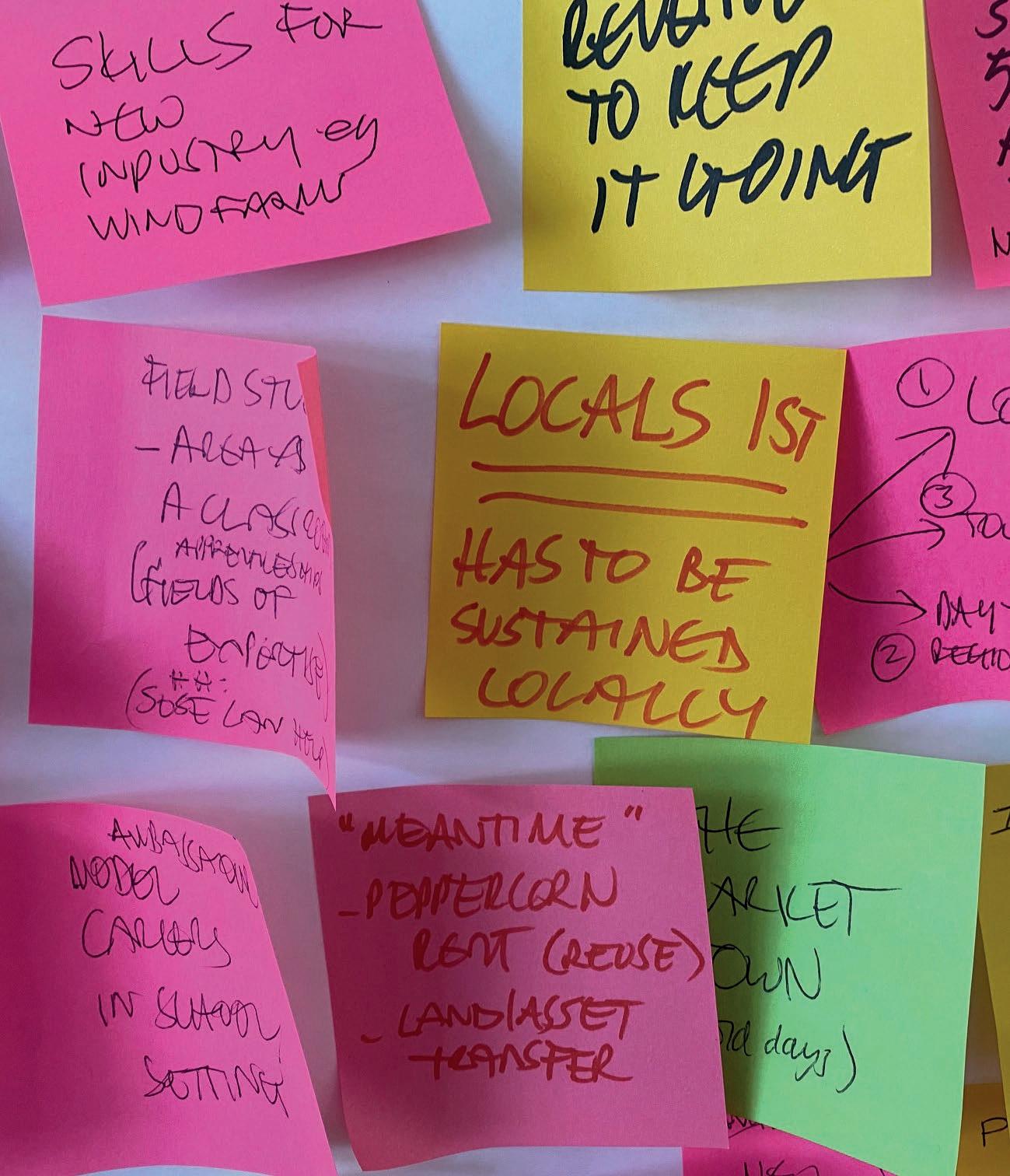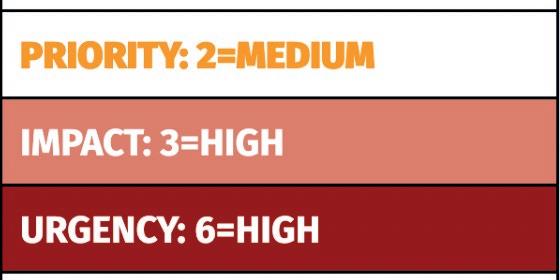
3 minute read
Appendix 8: Insights
The following insights came from conversations with local people and from experience of the Place Planning process. They are offered in the hope they might help others, following in our footsteps.
Issue
Advertisement
Local democracy is broken
• In a small town, broken relationships between community groups can damage partnerships working for decades.
• Some voices are over-represented and some underrepresented. The same names/faces pop up on several Boards in town. Articulate, confident, white males still dominate conversations.
• Working women also provide family care and are less likely to have the time to join community groups.
• Consultation is at saturation point. Every publicly-funded project requires engagement and approaches locals/groups.
• Old ways of community representation need to be refreshed. Few young people are interested in attending meetings.
• It takes a significant amount of time to build relationships and build trust.
No news isn’t good news
• From a standing start, we had 6 months to build a brand, a website, content, a database, relationships and engagement tools, to communicate and engage on the Place Plan. This is too short a timescale.
• The grapevine moves fast… much faster than newspapers and even beating social media. Any information gaps will be filled by assumptions and rumour.
Damned if you do…
• Locals consistently ask for a 10 pin bowling alley, yet when a Planning Application was submitted for one, locals objected.
• It’s a brave thing; delivering. The new mural in King Street was criticised for featuring a local woman (it doesn’t). Then it was criticised for that character not being a local.
Suggestions
• Introduce digital engagement to reduce reliance on individuals representing communities. This can potentially reach more diverse people. (Ensure in-person, in print and facilitated options for those who are digitally excluded.)
• Have a central Engagement role to coordinate consultation locally. This could manage the load on local groups, improve communication, build relationships, learn and improve.
• Don’t expect the public to come to you. Go where they already meet to engage.
• Work with an existing organisation with strong communication channels.
• Build communication skills/ capacity into roles.
• Issue regular, authoritative, reliable, trusted clear messaging.
Issue Suggestions
Promises promises
• Local people are exhausted, having repeated the same messages in consultations for decades, still feeling unheard.
• Several individuals - councillors and community activistshave campaigned hard for years for Stranraer and some have given up hope.
Money, money, money
• There’s a lack of revenue funding to support essential roles in the town longer term.
• The levels of poverty mean our community centres are unlikely to make money; they’d do well to sustain.
• Organisations are exhausted by the endless need to apply for funding.
• Competition for funding doesn’t promote partnership working.
• Short term funding doesn’t help a town thrive. The Unexpected Garden is typical. A 1 year project - ironic in a growing project with community development and skills building at its heart.
• Borderlands funding is retrospective. Local groups don’t have the cash flow to procure up front. Funders procuring on behalf of the community is seen as patronising and controlling. It isn’t ideal for small, local businesses who don’t have the scale to bid for/win tenders and aren’t on the Government procurement platform.
• Funders often only cover capital costs and expect communities to be able generate income from projects to cover salaries. This is an unreasonable expectation. It isn’t a commercial venture, running a community centre or project in an area impacted by poverty.
• The Council-managed Community-Led Vision Fund was advertised in January with an end of January application deadline. Funding of up to £50k had to be committed by the end of the financial year. This puts tremendous strain on small community groups trying to identify resources to apply for and commit funds in time and achieve quality outcomes.
Deliver promises!
• Put as much effort into giving feedback to those who took time to engage as we put into engaging in the first place… this way we can explain the things that can’t happen.
• Provide more long term, sustainable funding for projects.
• Longer term roles are needed to build community ownership and improve health and wellbeing.
• Funders should hand over procurement to local control to achieve faster delivery, lower prices and more work being placed locally.
• Allow reasonable timeframes for local organisations to devise funding applications and commit funding.
• Funders should offer flexibility between revenue and capital needs to support the town’s needs and improve sustainability.
• Ensure there’s good support for the project delivery team (eg a buddy system, Steering Group, supportive host organisation) to build resilience.
Community ownership
• Place Planning promotes a ‘community led’ process. A 6 month post isn’t long enough to do this well.
• Over the years, many successful community development roles in Stranraer have disappeared. This leaves local people high and dry.
• Place the role in a mature organisation or allow more time to develop connections before beginning engagement.
• Build on the momentum of this Place Plan and build ongoing capacity for community development in the town.
www.creatingstranraer.co.uk www.creatingstranraer.co.uk










